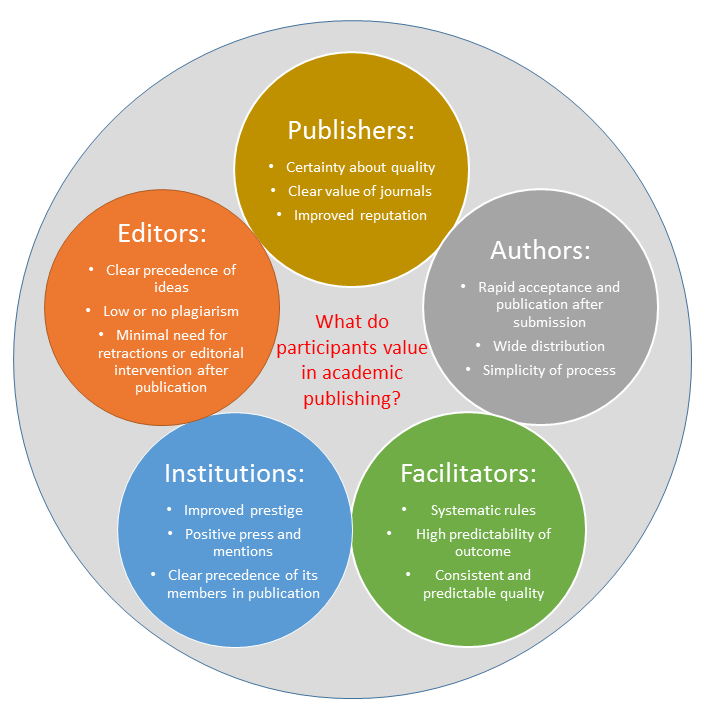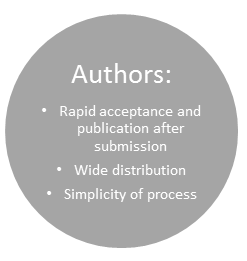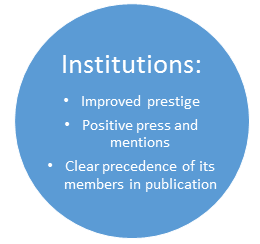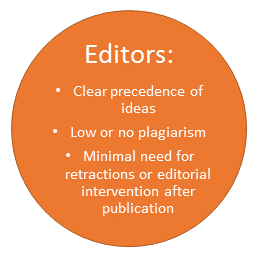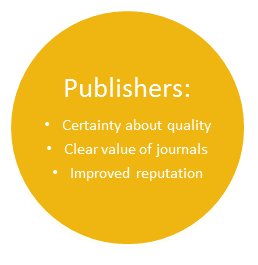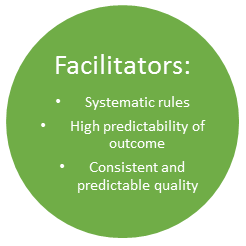A point of common agreement for facilitators is that the rules of academic publishing should be clear. Whether it is by systematizing the rules (as COPE does), by enforcing the rules and rewarding those who follow them (as the JSPS does in Japan, with agencies in other countries filling a similar role), or by disseminating the rules (as ThinkSCIENCE does), facilitators act in concert to make the publication process clear, consistent, and predictable.
In some fields, such as medicine, facilitators also act to ensure that human and animal research subjects are treated ethically. For example, the World Medical Association is responsible for the Declaration of Helsinki, which governs medical research involving human subjects.
As funding bodies, some facilitators require that authors who receive research money from them publish their research outcomes under certain conditions. The Wellcome Trust and the European Commission's Horizon 2020 program are two examples. They require all the research they fund to be published open access. Therefore, publishers that want to publish these papers must be able to offer open access publishing.
Companies in the scholarly publication ecosystem often fill multiple roles. For example, ThinkSCIENCE is an Associate Corporate member of COPE, provides education services to institutions, and benefits indirectly when researchers receive funding from JSPS and other sources. Part of our remit as a company that smooths the publication of research is to ensure that we understand the latest rules. Toward this, we actively educate authors about the rules via workshops and provide feedback on individual research articles, among other activities.
An example of facilitator-led change: Overleaf
Overleaf is a platform that allows online, collaborative writing of documents in LaTeX. We've been using this system when we teach LaTeX for years (back when it was called WriteLaTeX), and so we've been able to see it as it has undergone significant changes.
Now, Overleaf does more than just allow authors to write LaTeX. For example, it allows direct submission to some publishers and can be used in some peer review.
Overleaf is one example of a type of newly emerging service. These services aim to help authors do more of the 'mark up' of manuscripts, which allows journals to turn submissions into published articles more quickly and accurately. If authors prefer not to do any of the markup, these services can still assist copyeditors in marking up the articles later in the production workflow.
